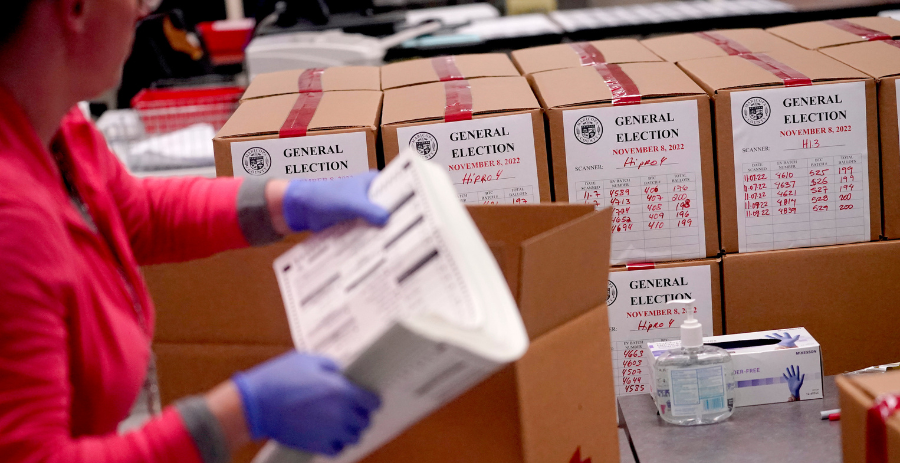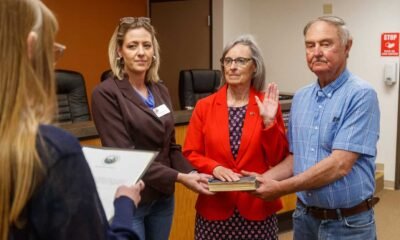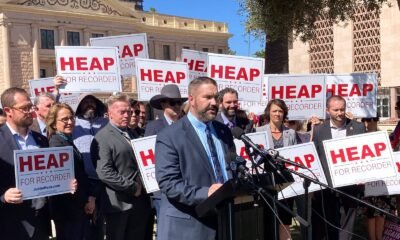Attorney General Kris Mayes
Mohave County Supervisor Advocates for Legal Shield on Hand-Counted Ballots

Ron Gould, a Mohave County supervisor, is pursuing legal immunity regarding his push for hand counts in election processes. He argues that Attorney General Kris Mayes poses a threat to his responsibilities in certifying elections, as he believes supervisors should have the authority to conduct comprehensive hand counts.
However, his previous efforts were stymied when a trial judge dismissed his lawsuit, citing a lack of imminent legal threat. Now, Gould has appealed to the state Court of Appeals, seeking a ruling that would allow him to present his case in Maricopa County Superior Court.
Assistant Attorney General Alexander Samuels contests Gould’s claims, labeling them speculative. He pointed out that Gould has not established a specific plan to violate the existing law that mandates electronic ballot tabulation.
Samuels emphasized that state law does not permit hand counting unless legislatively changed, asserting that the board’s authority is bound by current regulations. “The board has no statutory authority to authorize a hand count,” he remarked.
The implications of this legal battle extend beyond Mohave County, potentially affecting ballot-counting protocols statewide. Concerns have already been raised among supervisors in other counties about the accuracy of electronic tabulation systems.
This conflict traces back to 2023, when the Mohave County board considered a hand count for upcoming elections. Although Gould voted in favor, the board ultimately rejected the plan. Subsequently, board Chair Travis Lingenfelter revisited the issue, prompting discussions on its legality.
Attorney General Mayes cautioned the board, suggesting that pursuing a hand count could lead to criminal charges. Her warning led to a withdrawal from the proposal, despite Gould’s objections, which he attributes to Mayes’ influence.
In his legal arguments, Gould’s attorney, Dennis Wilenchik, contends that Mayes’ actions threaten the immunity traditionally granted to lawmakers during their official duties. He insists that a court ruling is necessary to protect Gould from possible prosecution in the future regarding hand counts.
Wilenchik highlighted that Mayes has not clarified her stance on enforcing the law against Gould, despite recent prosecutions of other supervisors in Cochise County. “The attorney general’s threats were not idle and empty,” he told the appellate judges.
Nevertheless, even if the appellate court sends the case back for further consideration, Gould faces hurdles. The initial ruling suggested that the judiciary is limited in addressing potential threats from the executive branch before any actual charges are filed.
The debate surrounding the reliability of electronic tabulation continues to be contentious. Courts in Arizona have dismissed various lawsuits questioning the integrity of the machines, supported by studies indicating that hand counts may introduce errors.
Despite concerns about electronic systems, Arizona law includes checks and audits designed to ensure accuracy in elections. Gould maintains that his push for hand counts stems from growing voter skepticism in the electoral process.
No date for the appellate court’s consideration of the case has been established yet.

















